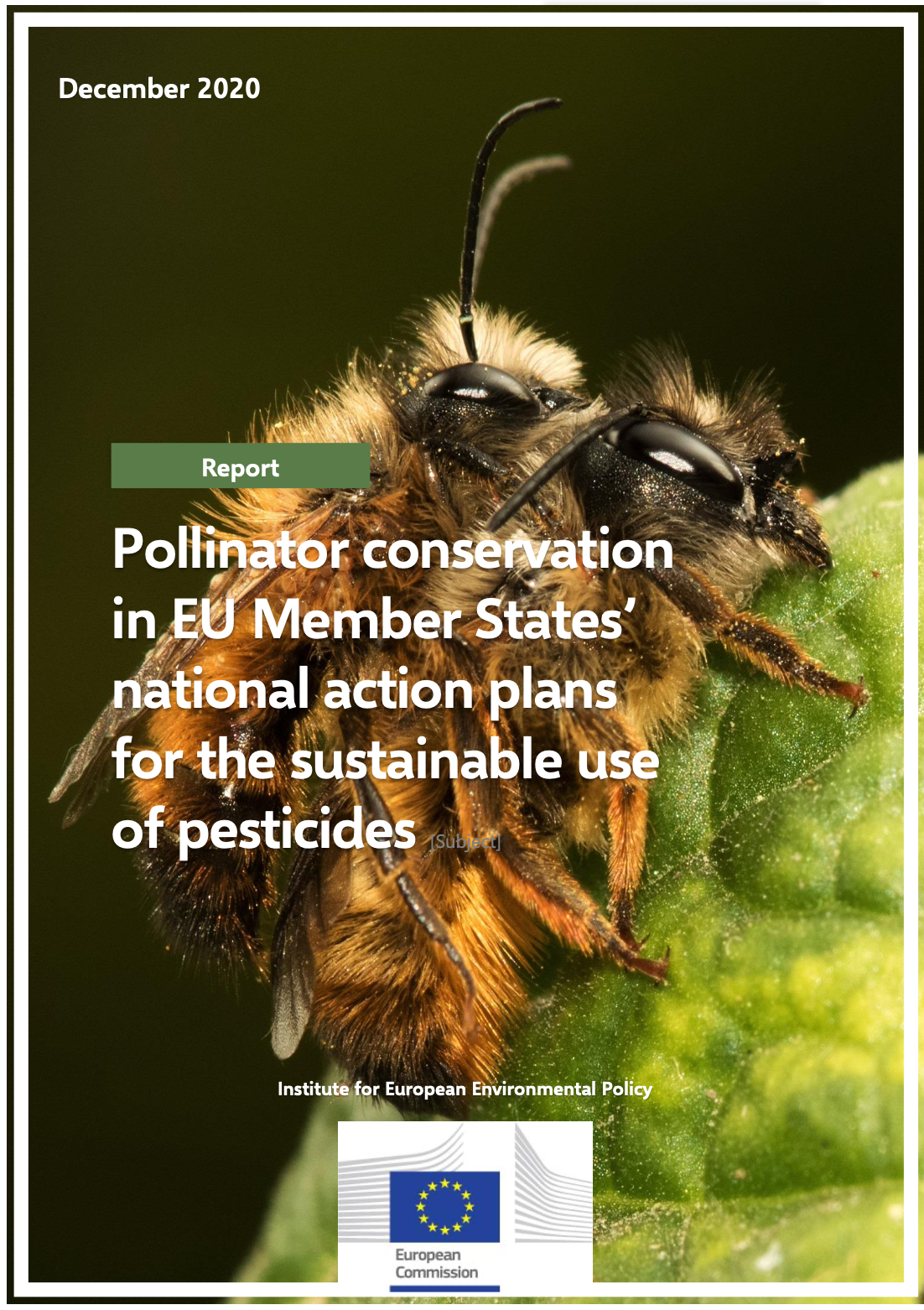Pesticides are one of the major threats to wild pollinators as the chemicals used to control pests can inadvertently also cause harm to pollinators. Integrated Pest Management (IPM), whereby chemical pesticides are only used as last resort, is an important part of protecting pollinators in both agriculture and non-agricultural areas, such as public parks.
Directive 2009/128/EC aims to achieve a sustainable use of pesticides in the EU by reducing the risks and impacts of pesticide use on human health and the environment and promoting the use of IPM. Under this Directive, Member States must set up national action plans (NAPs). Targets and measures to protect pollinators from pesticides can be integrated into those plans.
Report on the integration of pollinator conservation into the NAPs under Directive 2009/128 EC
This report, authored by the Institute for European Environmental Policy (IEEP), reviews how pollinator protection has been integrated within the current national action plans for the sustainable use of pesticides. It highlights good practices and gives recommendations on how these action plans can deliver more positive actions to reduce the pressures of pesticides on wild pollinators.
View file name IEEP2020 Pollinators SUP report_final rev.pdf height 250
Download here!
